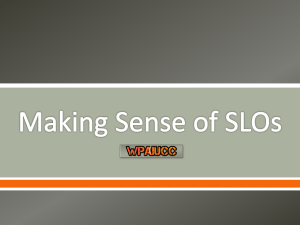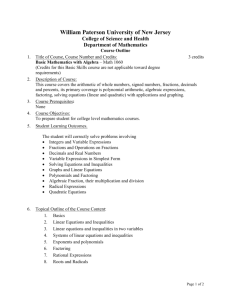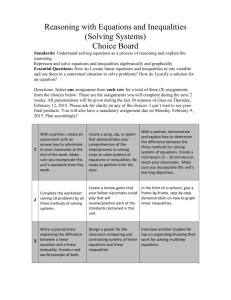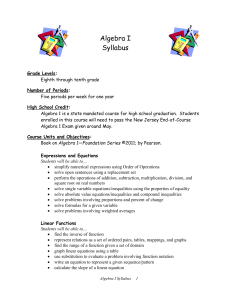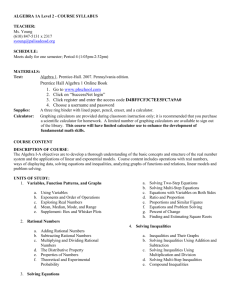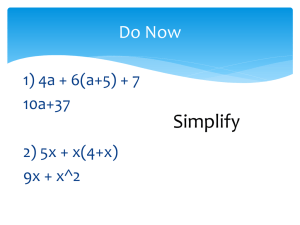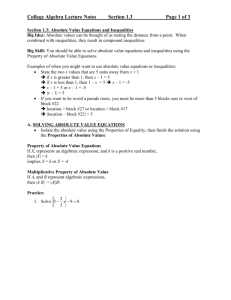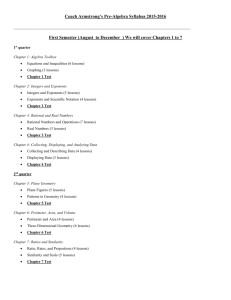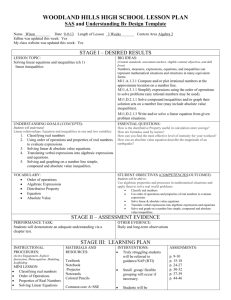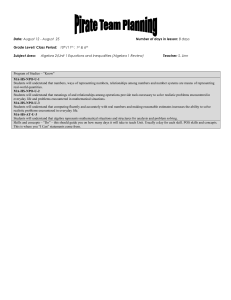Eighth Grade Algebra I California Standards
advertisement
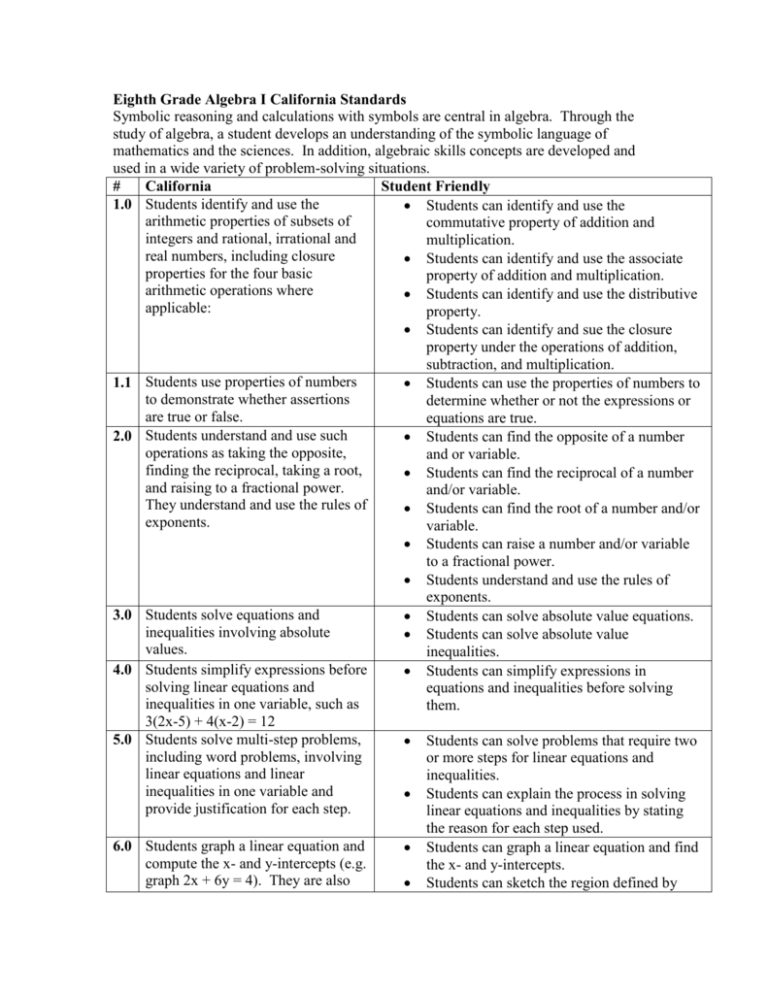
Eighth Grade Algebra I California Standards Symbolic reasoning and calculations with symbols are central in algebra. Through the study of algebra, a student develops an understanding of the symbolic language of mathematics and the sciences. In addition, algebraic skills concepts are developed and used in a wide variety of problem-solving situations. # California Student Friendly 1.0 Students identify and use the Students can identify and use the arithmetic properties of subsets of commutative property of addition and integers and rational, irrational and multiplication. real numbers, including closure Students can identify and use the associate properties for the four basic property of addition and multiplication. arithmetic operations where Students can identify and use the distributive applicable: property. Students can identify and sue the closure property under the operations of addition, subtraction, and multiplication. 1.1 Students use properties of numbers Students can use the properties of numbers to to demonstrate whether assertions determine whether or not the expressions or are true or false. equations are true. 2.0 Students understand and use such Students can find the opposite of a number operations as taking the opposite, and or variable. finding the reciprocal, taking a root, Students can find the reciprocal of a number and raising to a fractional power. and/or variable. They understand and use the rules of Students can find the root of a number and/or exponents. variable. Students can raise a number and/or variable to a fractional power. Students understand and use the rules of exponents. 3.0 Students solve equations and Students can solve absolute value equations. inequalities involving absolute Students can solve absolute value values. inequalities. 4.0 Students simplify expressions before Students can simplify expressions in solving linear equations and equations and inequalities before solving inequalities in one variable, such as them. 3(2x-5) + 4(x-2) = 12 5.0 Students solve multi-step problems, Students can solve problems that require two including word problems, involving or more steps for linear equations and linear equations and linear inequalities. inequalities in one variable and Students can explain the process in solving provide justification for each step. linear equations and inequalities by stating the reason for each step used. 6.0 Students graph a linear equation and Students can graph a linear equation and find compute the x- and y-intercepts (e.g. the x- and y-intercepts. graph 2x + 6y = 4). They are also Students can sketch the region defined by able to sketch the region defined by linear inequality (e.g., they sketch the region defined by 2x + 6y < 4) 7.0 Students verify that a point lies on a line, given an equation of the line. Students are able derive linear equations by using the point-slope formula. linear inequalities. Students will understand that all points that falls on the graph of a line are solutions to the equation. Students can verify that point lies on a line by using the equation of the line. Students can use the point-slope formula to write linear equations.
